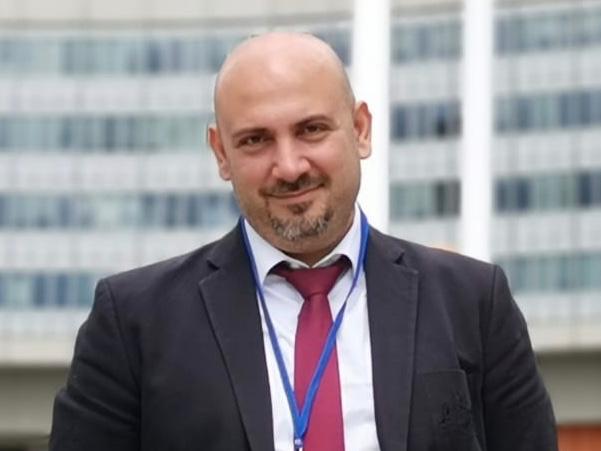حملَتني مهمتي الصحفية الجديدة مع "بي بي سي" إلى إيران، وفي أحد التقارير التي كنت أعمل عليها، ساقتني بعض الأسباب اللوجستية ليكون الهاتف المحمول الأداة الوحيدة المستخدمة خلال التصوير. كانت وجهتنا في البحر، كان هائجاً ما أعاق حمل الكاميرا معنا، لذا لجأنا إلى الهاتف المحمول لتصوير وصولنا إلى مضيق هرمز ولاحقا مهمتنا في تحديد موقع ناقلة نفط بريطانية محتجزة أمام ساحل بندر عباس، جنوبي إيران.
لم يقتصر استخدامي للمحمول فقط على تصوير التقرير، فقد كانت معظم مساهماتي المباشرة على الهواء عبر الهاتف وخدمة سكايب تحديدا. لم تكن هذه المرة الأولى التي ألجأ فيها إلى الهاتف في عملي، وبطبيعة الحال لن تكون الأخيرة، رغم أني أفضّل الكاميرا المحترفة عليه، وأنحاز أكثر للظهور على الهواء من خلال جهاز البث لا الموبايل، وهذا يعود لاختلاف نوعية الصور بين الوسيلتين، إلا أن واقعنا اليوم يضع تفضيلاتنا جانباً، والاستفادة من الأدوات الحديثة للوصول إلى جمهورنا المستهدف.
عزيزي القارئ، هذا المقال ليس عن صحافة الموبايل، وإن كنتُ استهليتُه بالحديث عنها، أتحدث هنا عن حال الصحافة في العالم العربي في زمن التحوّل، كيف نتعايش مع التطّور حتى ولو كانت مساحة الراحة الخاصة بنا مختلفة، وأيهما أهم الوسيلة أم المضمون؟ رغم مرور ما يقارب الربع قرن على دخول الإنترنت إلى العالم العربي، لم تستسغ العديد من المؤسسات الصحفية التقليدية العربية التحوّل الذي طرأ، وحقيقة أن عليها التعامل مع ما نعيشه من زاوية التطور الطبيعي الذي تشهده القطاعات. فضّل بعض أصحاب هذه المؤسسات الإغلاق على محاولة فهم محددات المرحلة الجديدة، وبالتالي استسلموا للنوستالجيا لتبرير عدم الخروج من قوقعة منطقتهم الآمنة. بالنسبة لهؤلاء فإن وسائل التواصل الاجتماعي والتطبيقات، وحتى المواقع الإلكترونية التي يمكن تصنيفها بكل راحة ضمير كإعلام تقليدي، كلها تمثّل موجة عابرة ستنتهي يوماً ما. لا شيء يمكن أن يُقنعهم حقاً بأنهم ماضون وأن وسائل الاتصال الحديثة هي التي ستبقى، كما حدث في قطاعات أخرى.
ولكي نخرج قليلاً من مجال الصحافة والإعلام ونضرب أمثلة في تحولات موازية حصلت في قطاعات أخرى، نستذكر كيف كان الاعتماد الرئيس في زمن الأجداد على الدواب في التنقل من مكان إلى آخر. كانت الرحلة من الشام إلى الحجاز تستغرق أربعة أشهر ذهابا وإيابا. بالنسبة للبعض قد تكون الرحلة جميلة وتحمل معاني التضحية والبذل لأجل الله، لكن اختراع القطار والطائرة والسيارة غيّر في المعادلة، وبدل الأشهر بات الوصول براً إلى السعودية ممكناً في ظرف يومين على الأكثر، بينما لا تحتاج رحلة الجو لأكثر من ساعة ونصف. لم يؤثر هذا التطور شيئاً على مبدأ الحاجة لوسائل النقل للانتقال من مكان إلى آخر، الوسيلة هي التي تغيرت.
وكما تطورت وسائل النقل تطورت وسائل الاتصال أيضاً. أنا مثلاً من الجيل الذي اختبر كتابة الرسائل بيده، كانت الرسالة تأخذ وقتاً وجهداً لإتمامها. كنا نسجّل بعض الرسائل على الكاسيتات ونرسلها للأقارب في الوطن، كما أن الاتصال الدولي كان بحد ذاته رفاهية لا يقدر عليها الجميع، بينما في أفلام الخيال العلمي كان الإبهار يعني، على صعيد المثال، إجراء حديث بين طرفين كلّ في مكان من خلال الفيديو. اليوم، أصبح الاتصال عبر الفيديو متوفراً بثمن زهيد والاتصال الدولي عبر وسائط جديدة معظمها يعتمد على الإنترنت، الهاتف الخلوي تطور من مجرد هاتف تتحدث عبره من أي مكان إلى أداة تختصر مكتبا بأكمله وإلى كاميرا ومسجل وجهاز بث مباشر، الوسيلة تغيرت لكن مبدأ التواصل بقي على ما هو، وهو ما يعيدنا مجددا إلى الصحافة.
ما يقاومه جيل الصحافة القديم هو الرضوخ لحقيقة أن أدوات العصر الحالية يمكن لها أن تكون مواكبة لرغبات الأجيال الأصغر سنا وفي ذات الوقت يمكن توظيفها لحمل مضمون ثقيل وجهد صحفي مميز. الربط بين الصحافة ورائحة الورق مثلا لا علاقة له واقعا بما نقوم به كصحفيين، رائحة الورق تعني لي وتعني لوالدي لكنها لا تعني شيئا لابنتي ذات الـ١٣ عاما. الأمر ينطبق على التلفزيون وتجمّع العائلة حول الجهاز الذي يزين غرفة الجلوس. سنجتمع حول غرفة الجلوس لنشاهد معا فيلما على إحدى الشبكات التي تقدم خدمة المشاهدة عبر الإنترنت، وربما نشاهد ما ننتقيه من أخبار عبر جهازنا الشخصي كلّ على حدا، أي أن الذي تغيّر هنا مجددا ليس المضمون الذي سيصل إلينا بغض النظر عن الوسيلة المستخدمة، إنما العادات التي كبرنا عليها، لذا يمكن الاستنتاج أن جيلنا هو الذي يعيش الأزمة، لا الصحافة نفسها.
الصحافة اليوم أكثر رشاقة من السابق، فرص العمل الصحفي لم تعد محصورة بالمؤسسات الكبرى، يمكن لأي صاحب موهبة التسلح بهاتف جيد وبرنامج توليف مناسب وقد يريد شراء قاعدة للهاتف وينطلق في أرض الله لتجهيز القصة التي يريد. ليس هكذا فقط، بالإمكان بسهولة حجز مساحة على يوتيوب ونشر المادة ومحاولة توزيعها من خلال وسائل التواصل الاجتماعي، قد تنتشر وقد تفشل، بناء على تفضيلات المتابعين، لكن المهم هنا أن من يرغب بصناعة مادة صحفية لم يعد مرتهناً للعمل لدى مؤسسة وإن كان لهذا الأمر سيئات لا تبدأ بمسألة الاستقرار المالي ولا تنتهي باتساع رقعة الانتشار، لكنها تشبع الشغف الصحفي لمن يعيشه.
من ضمن الملاحظات التي نسمعها كثيراً عن صحافة زمن التواصل الاجتماعي أنها سفّهت المهنة وحولتها لمهنة من لا مهنة له، أنا واحد من الذين قالوا هذا الكلام يوما ما، لكنّي وصلت لقناعة لاحقا أن النوعية لا علاقة لها بالمنصات، وأن الصحافة كما في الماضي كما الآن لم تكن يوما مهنة الصفوة وكثيرا ما شهدت وصمات عار وسفاهة، كما كانت في مناسبات عديدة باعثة على الفخر وسبباً في كشف الكثير من الأسرار والفضائح تسببت في محاكمة فاسدين وإسقاط رؤساء ووزراء. هل يحدث هذا اليوم؟ نعم يحدث في زمن التواصل الاجتماعي والدليل ما تقدمه مشاريع عديدة اتخذت من يوتيوب وفايسبوك وتويتر منصات لها، بعضها منبثقة عن مؤسسات ضخمة، وبعضها مبادرات صغيرة كبرت لأنها تركت أثرا حقيقيا لدى المتابعين الذين وإن كان لبعضهم تفضيلات شعبوية فبعضهم الآخر لا يزال يتمتع بذائقة تسمح للأعمال النوعية بحجز مساحتها الجماهيرية.
الصحافة لم تمت ولن تموت، هذا مجرد وهم، ما يموت هي المؤسسات التي يفشل أصحابها أو القيمون عليها في رسم خيط واضح بين الصحافة ووسيلة الإعلام، أو لنكن أكثر دقة، بين الصحافة وأداة تظهير المادة الصحفية. ما يحدث اليوم هو أن هذه المهنة تعيد تقديم نفسها بما يتناسب مع الأجيال الجديدة، بما يشبه أكثر العصر الذي نعيش فيه، بشكل أكثر تفاعلا، فلا يستقيم بعد اليوم أن يمشي الكوكب بأسره طريقا باتجاهين، بينما بعض من يظنون أنهم قيمون على المهنة التي تلعب دور المؤرخ في هذا الزمن، يصرون على ممارسة الأبوية من أعلى.


















![Palestinian journalists attempt to connect to the internet using their phones in Rafah on the southern Gaza Strip. [Said Khatib/AFP]](/sites/default/files/ajr/2025/34962UB-highres-1705225575%20Large.jpeg)





















